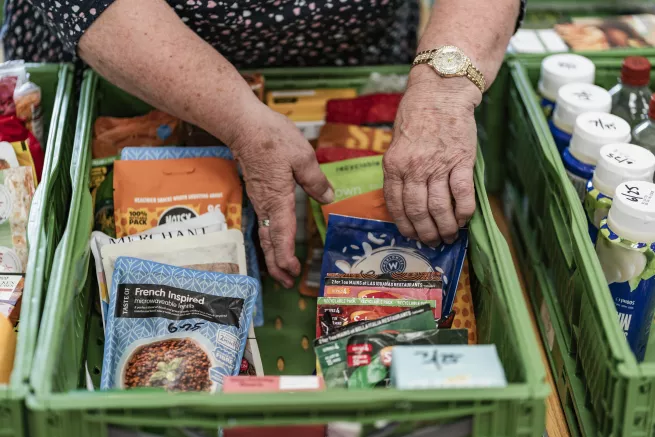How Foodbanks work
Ever wondered how it all works?
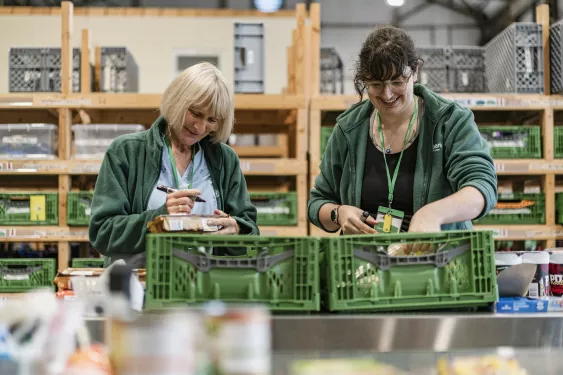
On this page:
How it all works
Every day people in the UK go hungry for reasons ranging from redundancy to receiving an unexpected bill, or simply being on a low income that isn't enough to cover what they need. A simple parcel of food and essentials makes a big difference, with foodbanks helping prevent crime, housing loss, family breakdown and mental health problems.
Food is donated
Schools, churches, businesses and individuals donate non-perishable, in-date food to us. Most commonly, this is done at a local supermarket or directly to our warehouse.
Large 1 or 3-day collections also take place at supermarkets throughout the year as part of Harvest Festival and other annual celebrations like Easter and Christmas.
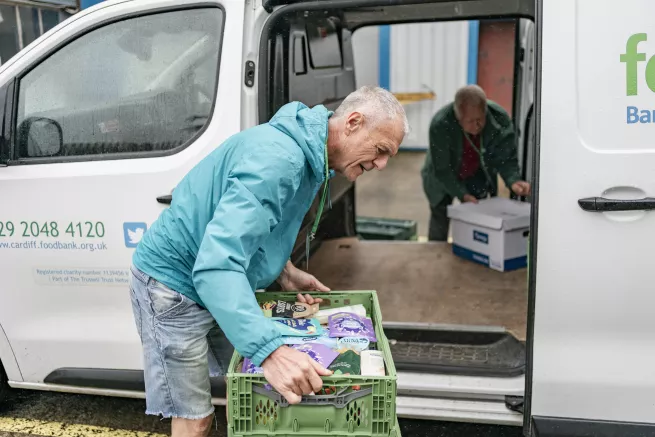
Food is sorted and stored
Volunteers sort food to check that it’s in date and store it in the warehouse ready for orders. We sort food by type and 'best before' date (BBE) as it ensures that we reduce wastage as much as possible.
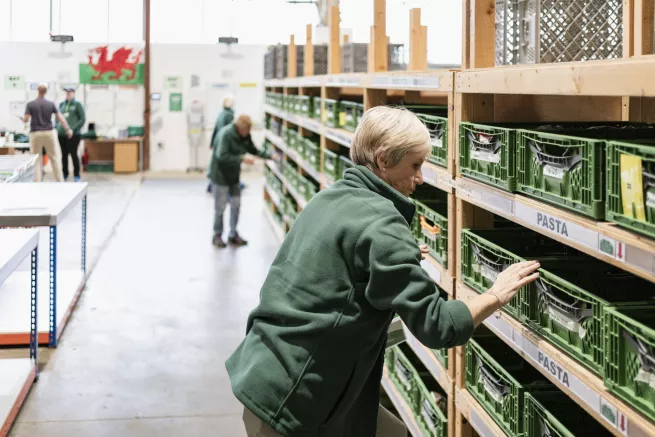
Orders are made up and delivered
Volunteers at our distribution centres request food from our warehouse that will replenish the shelves at their centres. These 'orders' are made up in our warehouse and delivered to the centres by our amazing team of volunteer drivers.

Professionals identify people in need and refer them
We partner with over 190 referral agencies; including Cardiff council advice hubs, housing associations, health visitors, churches, schools and more. They will identify people in need and the cause of their crisis. Using this information, they will provide guidance, advice and signposting to help that person move out of their crisis. These will include financial, social and mental health support.
Finally, they will issue them with a foodbank voucher and the client can attend a foodbank centre.
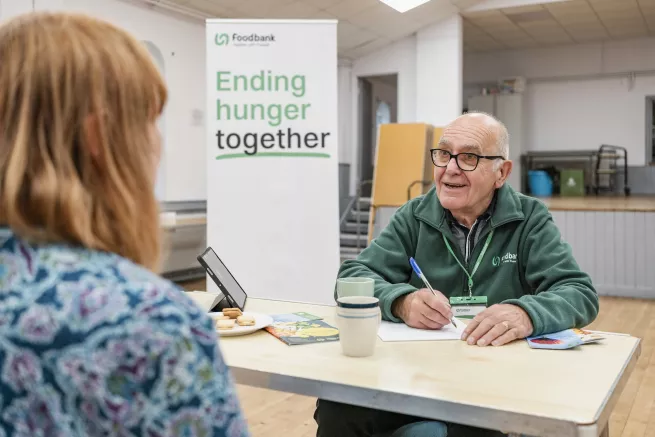
Clients receive their food
Foodbank clients bring their electronic voucher code to one of our centres where it can be redeemed for three days’ emergency food and essentials. Volunteers meet clients over a warm drink and can signpost people to agencies able to solve the longer-term problem.
Every parcel will be adapted to the clients dietary requirements and household size. The client will also be able to select a few other items including feminine hygiene, toiletries, household cleaning and pet food. These additional items aim to support the client more holistically.
